BUY Wavy Cap Mushrooms
$55.00 – $1,050.00
Potency
As stated at the beginning of this article, Psilocybe cyanescens is a highly potent species of psilocybin mushroom. It is one of the most potent magic mushrooms, in fact. This is due to its high concentration of psychedelic alkaloids.
Dosage
- Threshold: 0.25 g
- Light: 0.25-1 g
- Common: 1-2.5 g
- Strong: 2.5-5 g
- Heavy: 5+ g
Wavy Cap Mushrooms (Psilocybe Cyanescens)
Also referred to as “wavy caps,” wavy cap mushrooms (Psilocybe cyanescens) can be purchased. One extremely powerful psilocybin mushroom species is the mushroom. In the UK, they are referred to as “blueleg brownie mushrooms.” The term “brownie” alludes to the brown hue of the cap, while the term “blueleg” relates to the fact that the stem bruises blue when touched.
Despite not being as popular as other psilocybin mushroom species like Psilocybe cubensis, many users actively seek for wavy caps because to their high potency.
Everything you might possibly want to know about these mushrooms will be covered here, including:
- How to identify wavy cap mushrooms and wavy caps lookalikes
- How to grow wavy cap mushrooms (as well as where to find wavy cap spores and tips on growing Psilocybe cyanescens outdoors)
- Potency
- Dosage
- Wavy caps effects
Identifying Wavy Caps And Wavy Caps Lookalikes
It should first be noted that wavy caps grow in the wild. If you want to source them by picking them (rather than buying them from someone), you need to know what they look like.
After all, wavy cap mushrooms have some lookalikes that you definitely don’t want to pick and eat. Some of these are highly poisonous and eating them can make you feel very sick and, if not treated quickly, may be fatal.
Where Do Wavy Caps Grow?
The first step in identifying wavy caps in the wild is knowing where they grow. We can answer this question in two ways: by describing the kind of habitat you’ll find them in and by highlighting the countries — and the specific locations in those countries — where wavy caps grow.
Habitat
Psilocybe cyanescens grows primarily on wood chips, especially in and along the perimeter of mulched plant beds in urban areas. However, it can also grow on other lignin-rich substrates (lignin is an organic compound that strengthens the cell walls of plants, and is naturally produced in particular by woody plants).
Wavy cap mushrooms do not grow on substrate that is not lignin-rich. The mushrooms have been found in natural settings before (although most appear to be migrations from mulched plant beds). It is not typical for the species to grow on mulch made from bark.
Distribution
In the United States, Psilocybe cyanescens occurs mainly in the Pacific Northwest, but they can also be found in the San Francisco Bay Area, including in Golden Gate Park. You can also find these mushrooms in New Zealand, Western Europe, Central Europe, and parts of Western Asia such as Iran.
The range in which Psilocybe cyanescens grows is rapidly expanding, particularly in regions where it is not native, as the use of mulch to control weeds has become widespread. Wavy cap mushrooms have also been documented to fruit in Spring on the East Coast of the United States.
Although it has been believed that Psilocybe cyanescens’ native habitat is the coniferous woodlands of the north-western United States or coastal dunes in the Pacific North West, mycologist Elise Wakefield observed this mushroom growing in London’s Kew Gardens, which she described in 1942. An estimated 100,000 specimens have also been found growing on a racetrack in the south of England.
Fruiting occurs when the temperature in the area drops. In the San Francisco Bay Area, this means fruiting will tend to happen between late October and February, with fruiting in other areas usually occurring in fall.
How To Identify Wavy Cap Mushrooms
You’ll be able to identify wavy caps by knowing the distinctive features of the mushroom, which are as follows:
- Cap (pileus). Caramel to chestnut-brown when moist, fading to pale buff or slightly yellowish when dried. The caps measure from 1.5-5 cm across and are distinctly wavy in maturity (hence the name wavy caps). The color of the cap is rarely seen in mushrooms other than Psilocybe cyanescens. The cap can stain blue when touched or otherwise disturbed. The caps are sticky to the touch, owing to an outer gelatinous layer called a pellicle. Buy Wavy Cap Mushrooms.
- Gills (lamellae). The gills underneath the cap are adnate (broadly attached to the stem), and light brown to dark purple in maturity with lighter gill edges. The gills, like the cap, can stain blue if touched.
- Veil. The mushroom has a cobweb-like partial veil that peels away as the cap matures and expands, leaving an annular zone around the stem that is sticky and often turns purple-black due to the presence of spores.
- Stem (stipe). Fibrous, white when young, turning grey-brown as the mushrooms mature.
- Odor and Taste. Farinaceous (“flour-like”).
Wavy Caps Lookalikes
Psilocybe cyanescens has some lookalikes that you should be aware of. The ones that should cause caution are species from the genus Galerina, which can be deadly due to the presence of amatoxins (poisons unique to fungi).
After ingesting amatoxins, people may feel sick within a couple of hours, then recover a few hours later, whereas others experience no symptoms at all. During this time, however, the amatoxins begin causing damage to the liver and kidneys. If individuals don’t receive treatment, then around two days after the poisoning, they can start to feel weak, then very ill, and soon after that, experience organ failure.
Galerina species, such as Galerina marginata (also known as deadly skullcap, autumn skullcap, or deadly galerina), resemble young specimens of Psilocybe cyanescens with their caramel-brown cap. Buy Wavy Cap Mushrooms. The difference is that they have a brown stem with an annulus. They are poisonous and potentially deadly, as they contain amatoxins.
Other species considered wavy caps lookalikes are from the genera Cortinarius, Hypholoma, and Leratiomyces.
Cortinarius species are reported as lookalikes as some of these species have a blue coloring that fades over time, resembling blue bruising, while some (e.g. Cortinarius obtusus, Cortinarius rubellus) have a brown cap.
You definitely don’t want to eat the fairly rare but deadly Cortinarius rubellus (aptly named the “deadly webcap” mushroom). This is one of the world’s most poisonous mushrooms, as it contains the highly toxic compound orellanine, which can destroy the kidneys and liver. After consuming this mushroom, it can take up to two weeks for any symptoms to appear, by which time the damage has already been done.
Less poisonous but noteworthy mushrooms are Hypholoma species, which can also look similar to Psilocybe cyanescens. However, they grow in dense clusters, which is uncharacteristic of Psilocybe species. They tend to have brown caps with white stems and a purple-black spore print, and some can be poisonous.
How To Grow Wavy Cap Mushrooms
Growing Psilocybe cyanescens involves the same process as growing any other type of magic mushroom. You should refer to our guide on how to grow magic mushrooms at home for detailed instructions, but let’s offer a quick summary of everything you need and the steps you should take.
Wavy Cap Spores | Buy Wavy Cap Mushrooms
First, you need to source some Psilocybe cyanescens spores. These are the reproductive cells that allow the mushroom to grow. Magic mushroom spores do not contain psilocybin, so they are not themselves illegal. Buy Wavy Cap Mushrooms. But once they germinate and begin producing mycelium, psilocybin will be produced, making the end product illegal (since psilocybin is a controlled substance in most countries).
However, magic mushroom spores are illegal in California, Georgia, and Idaho. In the other 47 states, you’re free to buy and possess them.
There are different ways to get wavy cap spores.
One way is to extract your spores from the mushrooms themselves. The more popular option, though, is to buy them online from a vendor selling a spore syringe or print. The spore syringe is an oral syringe that contains just water and the wavy cap spores, while spore prints are little pieces of paper with the spores stamped onto them. The prints are dried and need to be rehydrated when you want to use them.
Steps For Growing Wavy Caps
It’s best to use our detailed guide for following the steps for growing wavy caps. You need the right ingredients, equipment, and hygiene supplies before getting started. The necessary steps will then be:
- Preparing the jars
- Inoculation
- Colonization
- Preparing the grow chamber
- Fruiting
- Buy Wavy Cap Mushrooms
- Harvesting
- Drying the mushrooms for long-term storage
Potency
As stated at the beginning of this article, Psilocybe cyanescens is a highly potent species of psilocybin mushroom. It is one of the most potent magic mushrooms, in fact. This is due to its high concentration of psychedelic alkaloids.
To get a sense of its potency, let’s take a look at the concentrations of psilocybin and psilocin in a few different species:
- Blue Angel (Psilocybe azurenscens): 1.78 percent psilocybin and 0.38 percent psilocin
- Liberty Cap (Psilocybe semilanceata): 0.98 percent psilocybin and 0.2 percent psilocin
- Wavy Cap (Psilocybe cyanescens): 0.85 percent psilocybin and 0.36 percent psilocin
- Magic Truffles (Psilocybe tampanensis): 0.68 percent psilocybin and 0.32 percent psilocin
- Golden Teacher (Psilocybe cubensis): 0.63 percent psilocybin and 0.60 percent
Because of their potency, flying saucer mushrooms are a popular option for microdosing — since you need a very small dose to achieve the intended effects.
Dosage
Because wavy caps are potent, you will need to take a lower dosage compared to less potent magic mushrooms, assuming you want to get the same intensity of effects.
For example, Erowid lists the following dosages for Psilocybe cubensis, a medium strength psilocybin mushroom:
- Threshold: 0.25 g
- Light: 0.25-1 g
- Common: 1-2.5 g
- Strong: 2.5-5 g
- Heavy: 5+ g
Based on the average psilocybin and psilocin content of wavy caps, it is generally recommended to take two-thirds the normal dose of Psilocybe cubensis.
| Weights | 7g, 14g, 1Oz, 1Lb |
|---|
Be the first to review “BUY Wavy Cap Mushrooms” Cancel reply
Related products
PolkaDot Dried Magic Mushroom
PolkaDot Dried Magic Mushroom
PolkaDot Dried Magic Mushroom
PolkaDot Dried Magic Mushroom
PolkaDot Dried Magic Mushroom
PolkaDot Dried Magic Mushroom
PolkaDot Dried Magic Mushroom
PolkaDot Dried Magic Mushroom

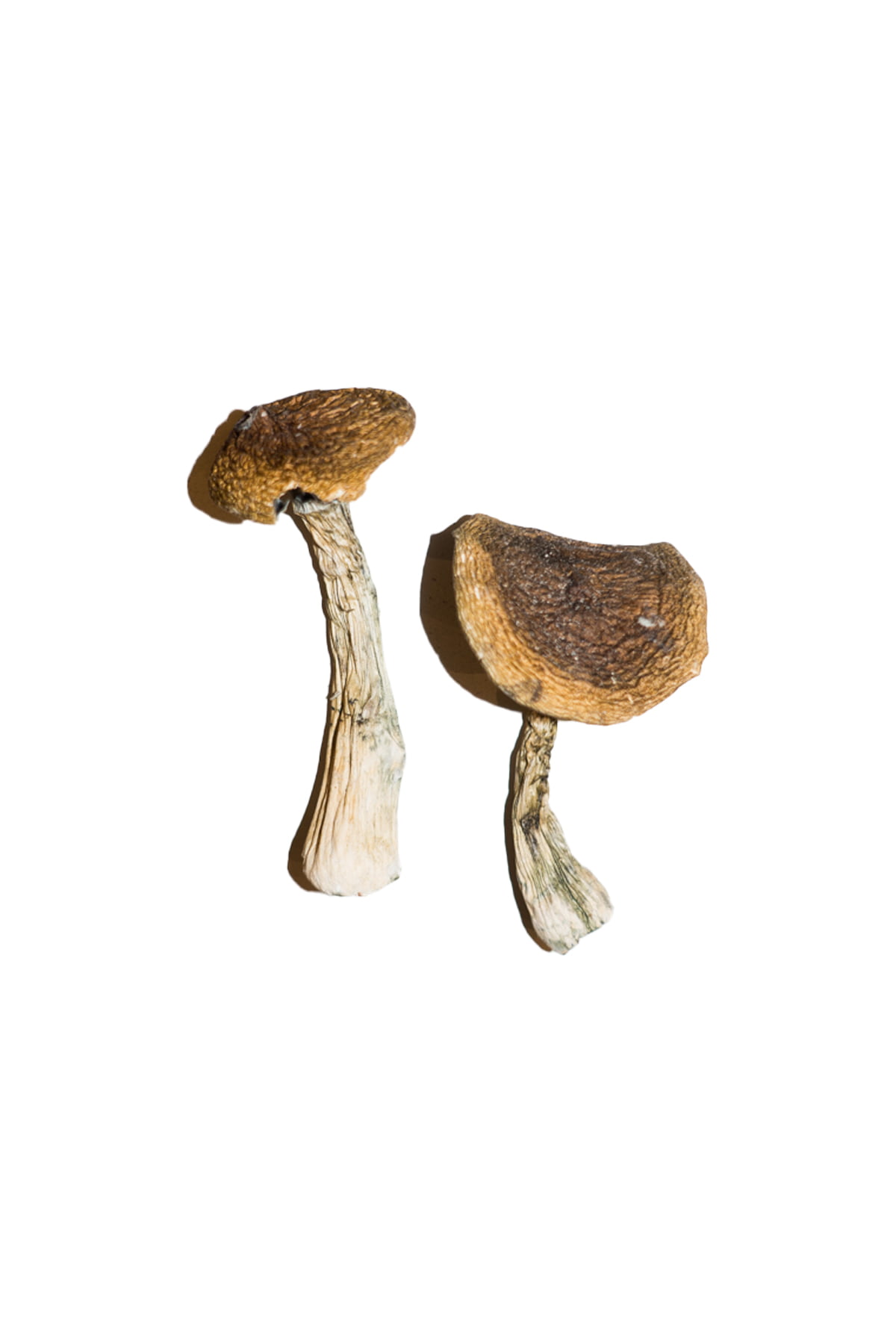
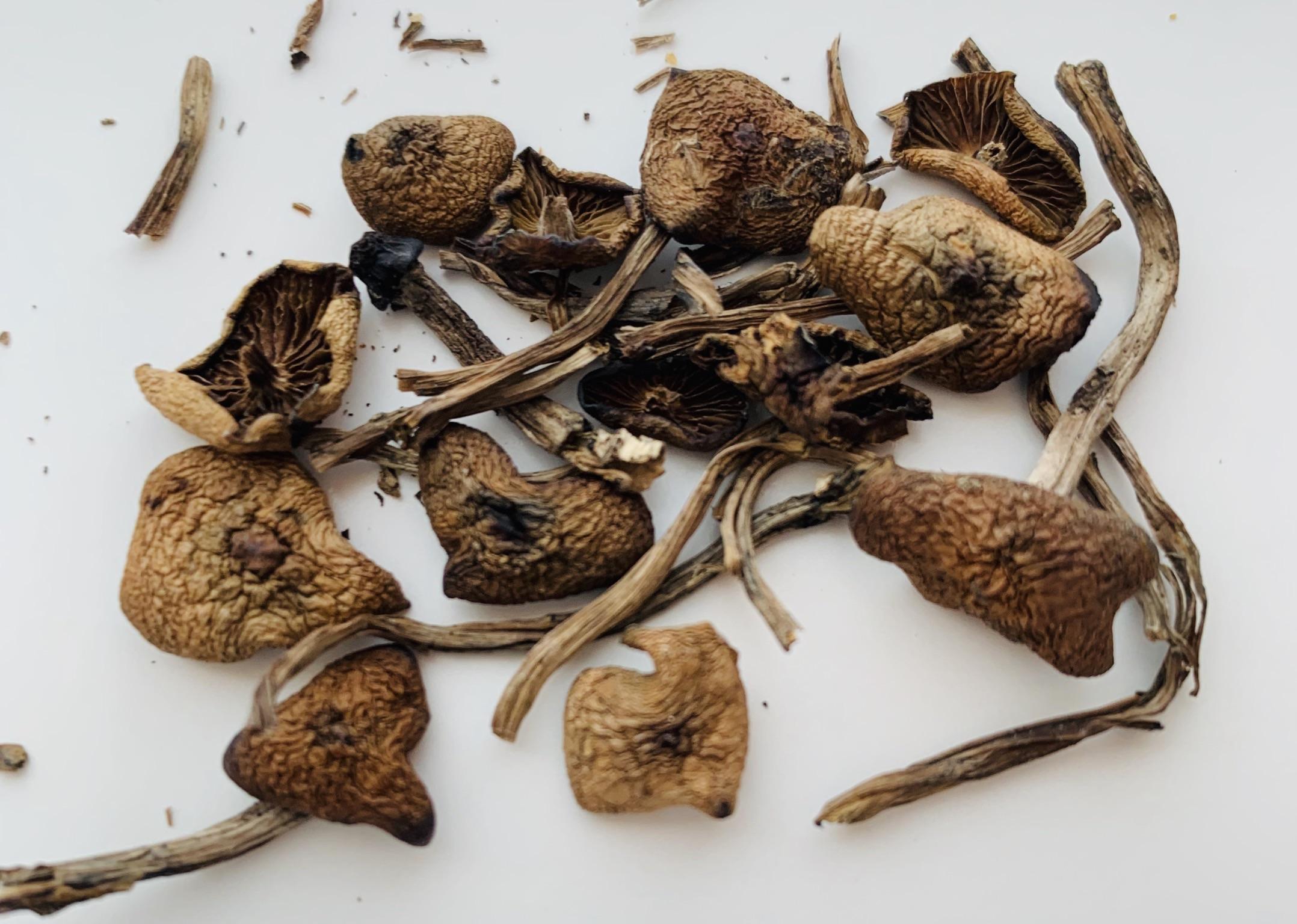


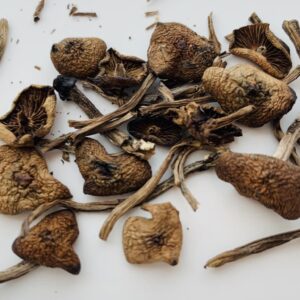
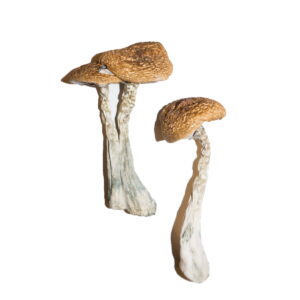
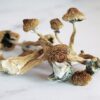
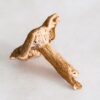

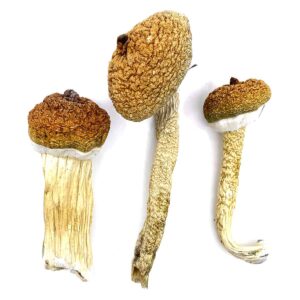
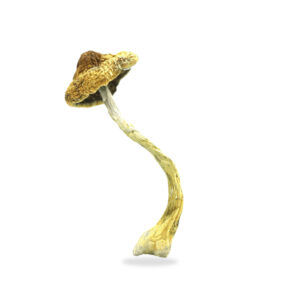
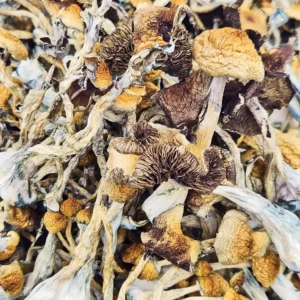


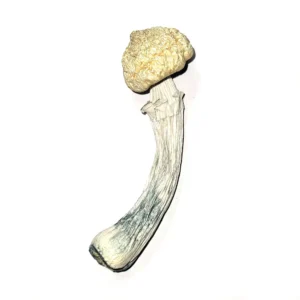
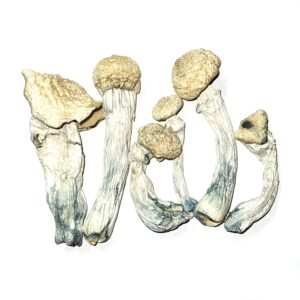

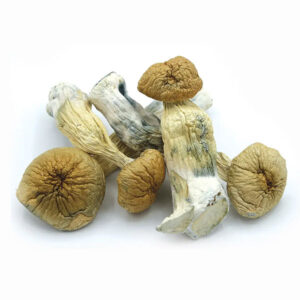
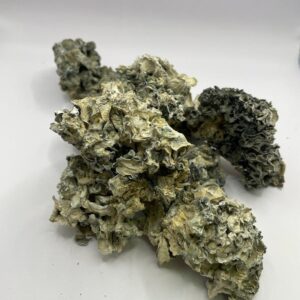

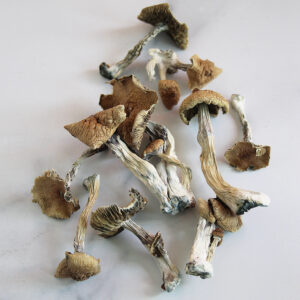
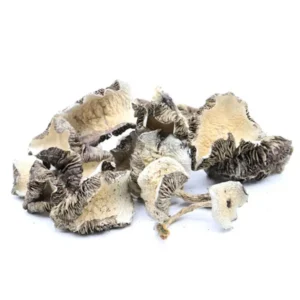
Reviews
There are no reviews yet.